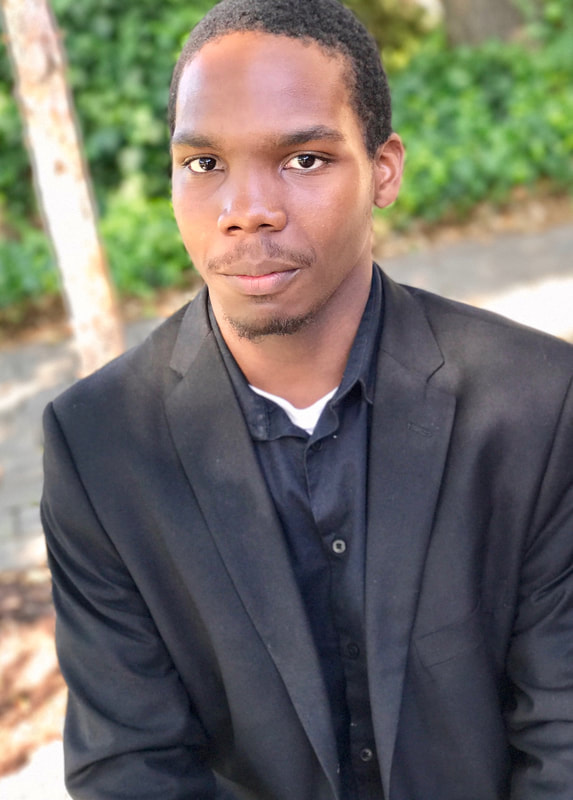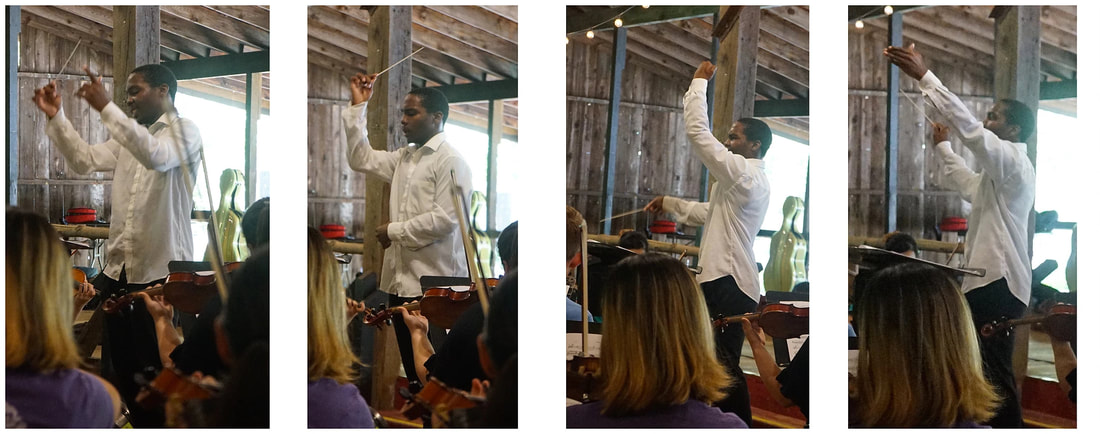|
Happy Sunday BIBA readers! This week, BIBA is featuring another composer, who is taking the music world by storm! Born in 1996, Quinn Mason's laundry list of awards is impressive and enviable. As you will read in his interview, his repertoire list is also quite long, including at least 8 works for large ensembles, at least 5 string quartets, other chamber works, vocal works, and solo works. I look forward to hearing more about Mr. Mason as his career progresses. Until then, please learn about this fantastic young composer (if you do not know him already)! BIBA: What is your earliest musical memory and how did you come into the world of composition?
QM: I first came into contact with classical music at the age of 10 during an elementary school trip to the symphony. Before then, I had been listening to classical music via the radio and CDs but had never experienced it live. I still remember my very first live concert clearly: Prokofiev’s Peter and the Wolf performed by the Dallas Symphony Orchestra with Sting(!) narrating. I remember being completely overwhelmed by the different sounds the musical instruments were making and how their different timbres contributed to the telling of the story. It was very eye-opening and still sticks with me to this day. A couple of years later, I had started cello lessons for free as a scholarship student of a local non-profit organization, the Fine Arts Chamber Players. During my practice sessions, I would experiment with the etudes and add notes or take notes out. Eventually, I would try writing my own ‘etudes’ on staves I had drawn and would take them to my teacher who was nice enough to try and decipher my handwriting and play what I had written. Hearing something I had created out of nothing was an indescribable experience. I wanted to do more and better than I did with the etude, so I eventually acquired numerous scores and recordings, which I delved into with insatiable curiosity. I mostly listened to orchestral music in my early music training, which is why I have a particular interest in writing orchestral music. I remember being addicted to the piano and was often the last one to leave piano class because I kept experimenting with the sounds of the digital piano (with a special fascination for the harpsichord). BIBA: Who are some of the most important musical mentors in your life? QM: One early mentor of mine was my elementary school music teacher, Raquel Lindemann. She was one of the first to see my curiosity for music and provide resources to contribute to my development as a musician. She gave me my first piano lessons, introduced me to some of the first orchestral repertoire I had ever seen (Scheherazade and Bartok’s Concerto for Orchestra), and also encouraged my early attempts at composition. Because of her efforts, I probably wouldn’t be where I am today without her encouragement. Nowadays, I like to seek advice from a fellow composer-conductor whose name is Will White. Mr. White directs his own orchestra in Seattle and is also a prolific composer. Since we share similar interests, his advice and mentorship are extremely valuable, especially since I can relate to it on a deep level. Perhaps the most important mentors in my life since the beginning are a couple, Rogene Russell and Doug Howard. Ms. Russell is a professional oboist and Mr. Howard is a professional percussionist. I met Rogene first at a career day during a presentation she gave about her instrument. She remembers a precocious young man who (to her surprise) recognized every orchestral excerpt she played, even the lesser known ones. The fact that I was around 10 years old at this time surprised her even more. With both of them being orchestral musicians, I then started attending even more DSO rehearsals and concerts. Seeing the orchestra work from the inside-out enhanced my interest in writing for the orchestra and piqued my interest in conducting. Their combined industry experience and parent-like guidance have contributed to my rounding as a musician today and gave me the tools I need to survive breaking into the industry. BIBA: What piece in your repertoire do you cherish the most and why? QM: There is one work of mine that I feel represents me and my current style, and that is a Symphony in B Minor I composed in 2016, called ‘Introspective’. I wrote it while in a deeply pensive mood and as a result, some of my most personal music is contained in this score. The movements have titles like ‘The Forgotten’ and ‘Beautiful Last Days’. I experimented with the harmony and orchestration, and got a piece that had a taste of nostalgia in it. I refer to it as a ‘personal document’ and I still utilize some of the compositional techniques I experimented with in this symphony. With regards to music that I’ve been studying, the one piece that has stuck with me is Stravinsky’s Rite of Spring. I first looked at it during some of my earliest composition lessons, and of course, I didn’t fully understand what I was listening to at the time. As I listened more to it, it grew on me and I came to love every bar of it. It was the rhythms that got me, and to this very day it’s still beyond me how one dude created all of this…in 1913. BIBA: What are some of your upcoming projects? QM: As of the time of writing this (January 2019), I am preparing for several world premieres including: the world premieres of String Quartets no. 2 and 6, a performance of my orchestral work ‘Passages of Joy’ with the South Bend Symphony Orchestra, the premiere of a piece for tuba and string quartet, a new song cycle based on poems of Christina Rossetti, a newly commissioned orchestral work for the Dallas Symphony Orchestra, and some pieces I wrote for friends at SMU, including ‘Double/Bass’ (for two double basses!) and ‘Weapon Wheel’ for three bass drums which I’ll perform with the dedicatees. I’m also doing preliminary planning for my 4th symphony for wind ensemble, to be premiered next year. BIBA: I give you the commission of lifetime! What piece would you compose? What musical forces, duration, performance location/space, etc … ? QM: I’ve always thought that the Bible would make for a really cool epic opera. Imagine it: elaborate and huge sets, expensive special effects for desert and flood scenes and the blending of different styles including oratorio and cantata. It would be a film, but with singing. All of this would utilize an orchestra that would even make Mahler go, “That’s too much, man.” – 6 or 7 woodwinds in each section, like 12 horns, 10 trumpets, 7 trombones, 5 tubas, an infinite percussion section, 6 harps, 5 choruses and a string section of about 100 to match. Of course, this opera would be about 5 hours long, and would probably rotate personnel frequently due to the demands. Where would this be staged? Probably in an open space outside (like a stadium) that could fit all this. Of course, a project like this would never be done during my lifetime, so not too much deep planning is needed! ------- To learn more about Quinn Mason, visit his website HERE, follow him on SoundCloud HERE, and subscribe to his YouTube channel HERE!
0 Comments
Leave a Reply. |
Details
Writings, musings, photos, links, and videos about Black Artistry of ALL varieties!
Feel free to drop a comment or suggestion for posts! Archives
May 2024
|
Member Login
Black concert series and educational programs in Boston and beyond



 RSS Feed
RSS Feed










